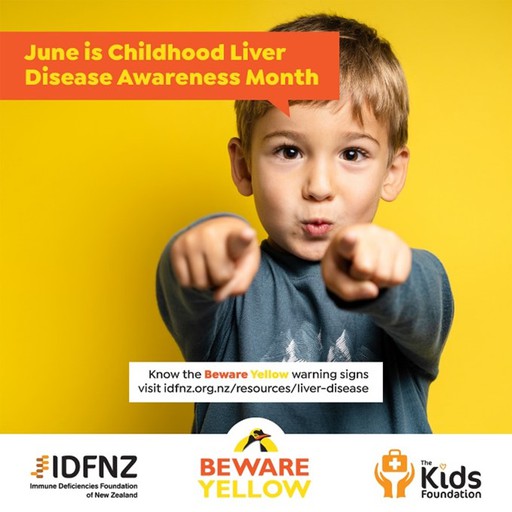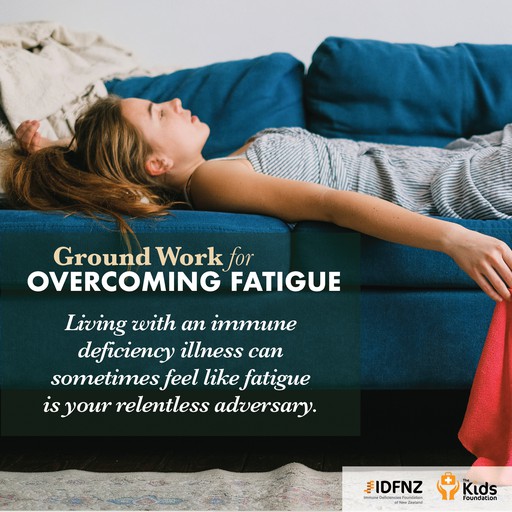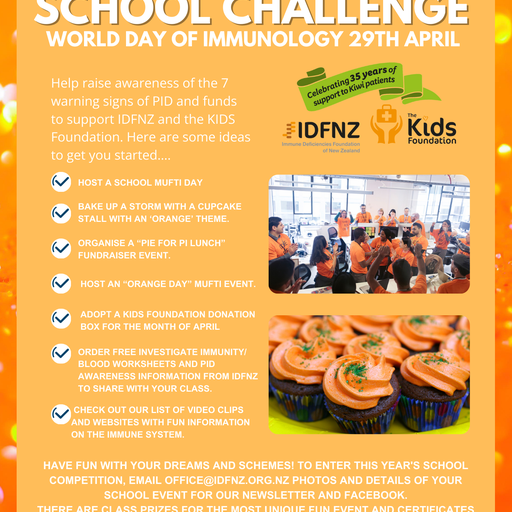My Story:
Sher Ling
From Wellington

Living with APDS2 – Sher Ling Chong, Wellington PID Patient
Sher Ling is eighteen, and getting on with life and PID, hallelujah! She has, like a number of PID patients in New Zealand, an extremely rare disorder – APDS2 (Activated PI3K Delta Syndrome 2), and she’s currently the only person in New Zealand diagnosed with it. Basically, it is a gain-of-function mutation affecting the P1K3R1 (for APDS2) gene, and, like about two-thirds of the 40-odd patients internationally known at the moment to have the condition, hers is a ‘de novo’ mutation (in other words, not inherited, and unique to her – so, just her ‘good’ fortune).
Ling was born on 9/9/99, an auspicious day for the Chinese and an ironic one for us – the number 9 symbolising long life and good health! Right from the beginning she was small, but apart from ‘thunder thighs’ (hilarious in such a tiny child) and a forehead that came quite a way forward of her face, she started life fairly normally.
Though she refused much in the way of solids until she was eleven months, Lingy was relatively healthy until she stopped breastfeeding, and then it was pretty much infection after infection from then on. We all have little things we’re grateful for, I’m sure – one of ours is that as a Eurasian whose grandmother was visiting from Malaysia, she got the TB vaccination at a week old, while she still had my immune system. We dread to think what might have happened had she gotten that one as an older child.
Lingy’s temperatures regularly got over forty, and it is surprising to me now that she was never sent to hospital for observation. Until we got a new GP when she was three, we got into a regular pattern of going to see the GP during the day, getting told she had a virus, and then having to go to After Hours at night for antibiotics. This was every three weeks to a month, until she turned four, when it upped to every fortnight. Our doctor was so much part of Lingy’s social life that she would cry if we passed the surgery without seeing him!
There were some advantages to having a sickly child in the house, at least as far as her older brother was concerned. He loved to play a game where he would hide behind doors and call out to her, and then giggle as she crawled right past looking for him. Even with the obvious hearing issues, it still took until we got our lovely new GP for her hearing to be seen to, and the ENT doctor she was referred to would eventually see her sent for the testing that uncovered PID.
She was intellectually normal but slow to develop physically. Other mums would marvel at how well my four-month-old could crawl (fun, because she was about eleven months at the time). Fortunately, she was very light, as she didn’t finally walk till she was eighteen months, a month after her little sister came along. Little sister outstripped her height-wise when the girls were two and three, and even now it is interesting sending them out together – Feng still gets expected to pay, and to verify that her ‘little’ sister is old enough to do whatever it is they’re off to do.
Another ‘fun’ symptom of APDS2 is lymphoid hyperplasia. Basically, lumps of lymph tissue roughly the equivalent of extra tonsils bunch in various parts of the body. In Lingy’s case they have collected in her throat, and since she began to speak, she has sounded like a hard-living, chain-smoking 64-year-old, making kindy quite difficult! She also sounded like a traction engine when breathing normally, let alone when she had a cold, and trying to convince teachers that yes, she could exercise, and no, she wasn’t dying right at this moment, was one of the constant joys of parenting.
We were, in retrospect, extremely lucky, in that she wasn’t diagnosed even with a PID until she was 12. Prior to that, there was always a niggle that something strange was going on (our wonderful ENT specialist just labelled her throat as ‘weird’, probably the most medically accurate diagnosis ever!), but we all fully expected her to grow out of being sick. Heck, we had three kids – one was bound to be sickly, especially since the other two were sickeningly healthy! If we’d known there was actually something medically difficult going on, we might have tried to shelter her, who knows? That would have been a real shame, because actually she was able to do everything a normal Kiwi kid can do, except stay healthy. She camped, she hiked, she climbed trees, she ran (very badly, but then so does her mother!), kayaked, swam etc. We just had to make sure we knew where the nearest doctor was, because every family holiday required a visit, as did before and after every school trip. Aren’t we so very blessed to have good public healthcare? Like other PID kids, she missed multiple birthday parties etc., but that was just her life.
Lingy was finally diagnosed with a PID after a round of tests to find out whether she was ever going to grow! Being half Chinese, it annoyed her that her ENT doctor, who’d promised her an eardrum repair when she was ten, was still putting it off when she was twelve and still very small – after all, most of her dad’s side of the family are small. As part of that, a paediatrician tested her for celiac disease, and of course (though we’d never heard of IgA before) she had too little IgA in her system for the test to be done. As a routine, another blood test was done to measure for the other four (again, things we’d never heard of), but the paediatrician assured us that nothing would be wrong there because she was, quote, ‘too healthy’.
It’s funny to think back on it, but it didn’t occur to any of us that it was strange when the paediatrician asked both parents and Sher Ling to come in to an appointment at the public hospital (we’d been doing the testing privately, as height issues aren’t exactly a public health priority). The paediatrician, and evidently the immunologists at Starship, were stunned by the results – she had hyper IgM but almost nothing of the rest. In a way that was a good thing, because PID was immediately obvious – there was no need for monitoring of that aspect, anyway. Starship got involved immediately, and the rest is history – tests, operations, more tests and more operations. And lots of crocheting done while she was having IVIG! Thank the good Lord for subcut – the hospital days are now a thing of the past.
Now APDS has been diagnosed, just after she turned seventeen (thank you, Dr Baguley and Dr Kahn!), it is obvious that one reason for her relative good health was that the condition is gain-of-function. Basically, the IgM factor acts like a hyperactive child, and goes all out, hiding infection for some time. Then, all of a sudden, it decides that enough is enough, and it’s ‘out of there’, causing the backed-up infection to flood in and overwhelm everything else. That explained her tendency to go from a relatively normal 37 degrees to over 40 degrees in a half hour, complete with shakes and vomiting. If she had been prone to febrile convulsions, her temperatures might have been taken more seriously earlier on, but as she just got delirious, nobody was too concerned.
Lingy (and the rest of the family!) has, overall, been blessed:
Firstly, to have been born in a Western country – had she been born in, say, Cambodia, she wouldn’t have lived much past her first year.
Secondly, that she was not diagnosed until she was older – we may have stopped her doing some things, had we known earlier.
Thirdly, that APDS2 was finally diagnosed, thanks mainly to Dr Baguley, (the wonderful ENT doctor she was passed on to by Dr Ferguson, our original wonderful ENT specialist). It was Dr Baguley who recognized the lymphoid hyperplasia, enabling Dr Kahn to finally put everything together and get blood samples to NIH in the U.S., where the wonderful team there had other samples to compare it with. APDS as a diagnosis is only about 3.5 years old, so it wouldn’t have been found when she was a wee dot anyway.
And, finally, that God placed us in a good church family and a relaxed community, where she was always welcome, even complete with runny nose and constant coughing!
Lingy is off next week to Australia for a working holiday, and so will get to test out the Reciprocal Health Care Agreement for herself! She is a bubbly, tiny but tough 18-year-old with a bright future ahead of her, in spite of all the annoyances surrounding PID. Next time she may tell her own story, but right now she’s too busy packing!
Kia kaha, and bless you all! PID can be tough, but our kids and adults need to live life still – let’s enjoy it to the full while we all have it. Thank you for all your support, IDFNZ.
Tanya Chong ( mum)



